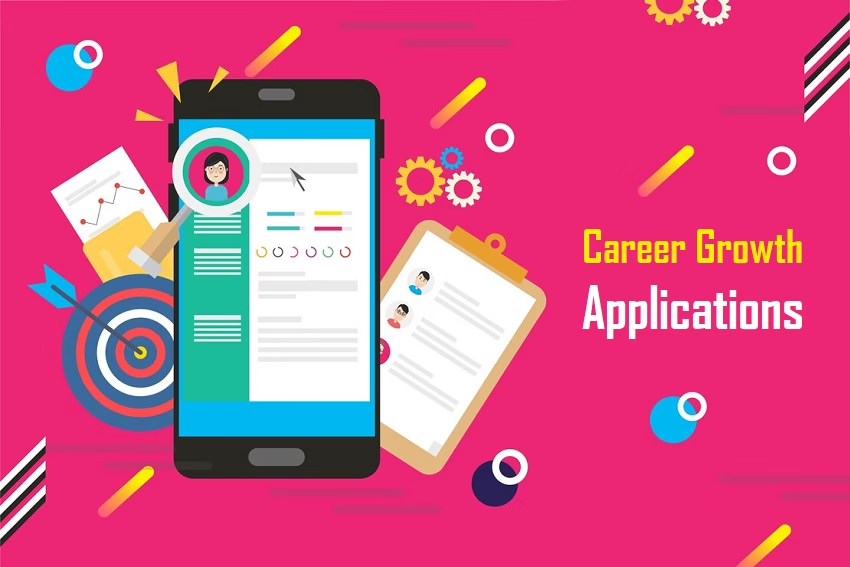To build and maintain customer satisfaction, problem-solving, and strengthen organizational image call center industry has become significant. This means that call center agents should be empowered with a wide range of skills to be able to succeed in such a volatile market.

It is noteworthy that various technical skills are combined with social and personal skills on the one hand and solving problem skills on the other. In this article, I will explain what core call center skills are, why they need to be mastered, and how they can be achieved.
10 Must-Have Contact Center Skills for Agents
Below is a detailed guide to understanding customer service experience and the core call center skills for agents. You wouldn’t put a dollar into a portfolio and not make any money, so arm yourself with these powerful talents and let your career soar to great heights.
1. Communication and Social Skill
The relational aspect which therefore encompasses the key determinants of facilitating effective communication constitutes the heart of call center operations. When educating a client on a products’ functionality, addressing a customer’s billing concern, or addressing a client’s complaint the result of the call is hinged on the agent’s communication skills.
Components of Effective Communication:
- Clarity and Simplicity: Customers should never feel more confused once they have spoken to an agent. Clearing such information is one of the most important competencies that guarantees that the customers comprehend the proposed solution.
- Professional Tone: Maintaining a professional yet empathetic tone builds trust and credibility during the interaction.
- Active Listening: A significant part of communication is listening attentively to the customer. This ensures that the agent fully understands the customer’s concern before offering solutions.
Why It Matters?
- Miscommunication leads to customer dissatisfaction and unresolved issues. Clear communication improves first-call resolution (FCR) rates, an important performance metric in the call center industry.
- Strong communication skills make interactions more efficient, which reduces average handling time (AHT).
Tips to Improve Communication Skills:
- Practice summarizing customer queries to confirm understanding.
- Use role-playing exercises to simulate customer scenarios and refine responses.
- Avoid interrupting customers mid-sentence, allowing them to fully express their concerns.
2. Empathy and Emotional Intelligence
In brief, empathy is a capability that involves the understanding of ideas felt by other people. From the effective perspective of the call center, it permits the agent to develop a good relationship with the customer even when the situating circumstances become difficult. Coupled with emotional self-awareness—being able to understand and regulate one’s emotions and emotional awareness of others; dealing with clients becomes colorful with the agents.
The Importance of Empathy in Customer Service:
- Fostering Trust: Customer concerns are a lot more believable when the agents who respond to them are genuine.
- Easing Frustrations: When customers realize that they are being understood, they are likely to be calm instead of continuing to be annoyed.
- Enhancing Personalization: Emotional intelligence makes it possible for agents to mirror the feelings of the customer and so deal with the needs of the client.
Key Traits of Emotionally Intelligent Agents:
Maintaining Composure: Emotional stability allows for the proper handling of conflicts which enables proper communication.
- Recognizing Emotional Signals: Agents can learn to be thoughtful in response based on these behaviors such as the tone or choice usage of specific words.
- Using positive language to reassure customers
Developing Empathy:
- After the customer has expressed their concerns patiently practice active listening to fully appreciate the signal.
- This will help you to empathize with the customer and to ease the tension by using phrases such as “I know how you feel.”
- Be composed and willing to manage conflict with customers.
3. Problem-Solving Skills
Employees in a call center may face such problems as billing matters and service breakdown. Issue-solving skills must be well-developed to deal with these issues. These encompass an extensive critical understanding of the problem, critical cause evaluation, and critical and feasible solution formulation as to the problem.
Outlines of Solving Problems
- Understand the Problem: Gather all needful information by asking appropriate questions similarly.
- Pinpoint the Cause: Determine if it is caused by user error, technical problems, or service issues.
- Recommend a Solution: Propose a quick and efficient solution that meets the needs of the customer.
- Maintain Communication: If this is a problem, bring them up to speed on the progress that is being made hourly or daily until the problem is fixed.
Benefits of Strong Problem-Solving:
- Higher customer satisfaction due to quick and effective resolutions
- Improved FCR rates, which is a key indicator of call center performance.
- Reduced escalation of issues to supervisors or managers
Building Problem-Solving Skills:
- Familiarize yourself with common customer issues and their solutions.
- Engage in scenario-based training sessions to practice handling unusual challenges.
- Collaborate with colleagues to learn alternative approaches to problem-solving.
4. Product and Service Knowledge
There is no doubt that knowledge of the company products is very crucial for an agent seeking to deliver the best customer service. Customers depend on the call center agent for the right information, and description about certain features, and procedures involved.
Why Product Knowledge is Crucial?
- Increases Credibility: An agent who confidently answers customer questions builds trust in the company’s expertise.
- Accelerated Problem-Solving: Up-to-date knowledge ensures first-call resolution and timely satisfaction of the customer’s complaints.
- Opportunities for Cross-Selling: Such information enables agents who deal with products to advise the customers on product updates or related services that may meet their needs.
How to Master Product Knowledge?
- Participate in regular training sessions to stay updated on changes in products or services.
- Use internal knowledge bases or reference guides during calls to provide accurate information.
- Engage with the product yourself to understand its features and limitations firsthand.
5. Adaptability and Flexibility
Proactivity and flexibility are the keywords in the world of call centers as they are constantly evolving. The fact is that agents can face volatility, and priorities, customer expectations, and obstacles can change unexpectedly.
Traits of Adaptable Agents
- Ability to remain calm in unpredictable situations.
- Willingness to learn new tools, processes, or scripts.
- Comfort with overseeing a wide range of customer personalities and issues.
Why Adaptability Matters?
- Adapting to different customer personalities ensures smoother interactions.
- Flexibility allows agents to seamlessly switch between tasks, such as answering calls, responding to emails, or updating records.
Tips for Becoming More Adaptable:
- Stay open to feedback and use it as an opportunity to improve.
- Develop a mindset of continuous learning to keep up with industry trends.
- Practice staying calm in high-pressure situations by using stress management techniques.
6. Time Management and Multitasking
Teleservice centers are socially active places where the agents are supposed to work under a lot of pressure and manage different tasks. Scheduling, therefore, makes it possible for the agents to produce the work set for them within the requisite standard of delivery. Taking phone calls while writing down points of contact in various CRM applications. Working through direct message and site chat requests and the clarification and subsequent handling of emails. Flipping between such tools to access customer data.
Multitasking in Call Centers:
- Handling calls while documenting important details in CRM systems.
- Managing live chat inquiries alongside email responses
- Switching between different software tools to retrieve customer information
Strategies for Effective Time Management:
- Use priority lists to focus on the most critical tasks first.
- Keep conversations concise while ensuring the customer’s issue is fully addressed.
- Regularly review processes to identify opportunities for greater efficiency.
Tools to Support Time Management:
- CRM software that integrates all customer information in one place
- Call routing systems to ensure agents receive queries they are best suited to handle.
- Personal productivity tools like timers or to-do lists to stay organized.
7. Technical Proficiency
Today call centers employ many technologies aimed at making the flow of the agency efficient while at the same time improving customer satisfaction. It takes some level of proficiency for such agents to use all available apparatus to accomplish their tasks.
Essential Technical Skills:
- CRM Software: Understanding how to navigate customer profiles, update records, and log interactions.
- Proficient in Call Handling Systems: Knowledge of Auto Dialers and call routing software, knowledge of VoIP systems guarantees smooth working.
- Basic Troubleshooting Skills: Clients are comfortable with letting employees deal with minor technical issues that may include resetting their password or settings.
Pros of Technical Competence
That is why agents with technical knowledge become not only a benefit for improving the quality of customer service but also an auxiliary factor for improving the work of the company.
- Reduces delays caused by agents struggling to navigate systems.
- Enhances overall productivity and efficiency.
- Enables customer value maximization and hypertension of agents to deliver a satisfying experience to customers.
Enhancing Technical Skills:
- Participate in training sessions for new tools and software.
- Practice using tools during downtime to build confidence.
- Stay informed about emerging technologies in the call center industry.
Also Read – Benefits of Implementing Call Center Software for Small Businesses
8. Patience and Resilience
Customers’ complaints, long hours of waiting, and overall stress from lots of work put the call center agents under pressure. Picking patience and determination as personal qualities is significant while optimizing professionalism, composure, and efficiency irrespective of the circumstances.
The Role of Patience:
- Allows agents to fully listen to customers without rushing the conversation.
- Reduces frustration when dealing with repetitive issues or irate customers.
Building Resilience:
- Learn to depersonalize negative customer review.
- Use relaxation activities including practicing mindfulness in processing stress.
- Focus on what strategies should be instead.
Long-Term Benefits:
- Agents with high resilience are less likely to experience burnout.
- Patience and resilience contribute to a more positive work environment.
9. Attention to Detail
Attention to detail ensures that agents manage every aspect of their work with accuracy, from recording customer information to processing requests. Small mistakes can lead to significant problems, making this skill critical in a call center setting.
Common Scenarios Requiring Precision:
- Documenting customer inquiries or complaints accurately
- Double-checking account information, billing details, or order specifications
- Following prescribed scripts or compliance guidelines
How to Develop Attention to Detail?
- Review completed tasks to identify and correct mistakes.
- Take notes during calls to ensure all important details are captured.
- Use checklists to verify that all steps of a process are completed.
10. Team Collaboration
While call center agents spend much of their time interacting with customers, collaboration with colleagues is equally important. A strong team culture ensures that agents can support one another, share knowledge, and resolve complex issues effectively.
The Value of Collaboration:
- Encourages knowledge sharing, which benefits both new and experienced agents.
- Fosters Team Unity and Motivation: Involves people leading to improved morale thus boosting the performance rates of the firm.
- Facilitates Seamless Collaboration: The option means that there will not be any challenges in the interaction between various teams/ departments when tackling complicated matters.
Tips for Enhancing Collaboration:
- Communicate regularly with teammates to stay aligned on goals.
- Participate in team-building activities to foster trust and cooperation.
- Use collaboration tools, such as chat platforms or shared documents, to streamline teamwork.
Conclusion
The job description of a call center agent is a complex one since the call center agent is not only involved in technical aspects but also interpersonal skills and organizational skills are important. Training the mentioned ten employability skills may enable the agents to provide efficient and effective service, prescriptive KPIs and achievements, and enhance the company’s favorable image.
Of course, some of these call center skills like communication and empathy are in-born traits but technical, efficiency, and time management are learnable. Common touch point issues that hinder clients from accessing services include companies ought to take their time to ensure they offer constant training sessions to ensure agents are fully armed with the many tools they need.
For call center agents the issues of learning and improvement should be constant. From this perspective, skills, as well as managers’ ability to adapt to the complexities of agency-oriented responsibilities, and guarantee satisfactory customer experiences at every turn, can be deemed vital to successful performance.
FAQ: Frequently Asked Questions About Call Center Skills
Q1: What makes communication important for call center agents?
A1: It accrues to FCR and AHT and decreases misunderstandings as agents can communicate effectively improving on the use of solutions.
Q2: In what way can the call center agents learn how to be empathetic?
A2: Empathy can be built by listening to customers and having little time for self-pride during an argument.
Q3: How can one enhance the effectiveness in solving problems?
A3: As a result, agents should acquaint themselves with the types of problems, the use of the roleplay, and work with partners for various options.
Q4: What makes product knowledge important for call center agents?
A4: This paper has therefore highlighted essential aspects of product knowledge that include building trust, quick resolution of issues, and formation of upselling opportunities.
Q5: What can agents do to increase their adaptability?
A5: The following are ways that agents can improve flexibility: Agents should always be willing to accept constructive criticism; they should always learn ways of dealing with stress; agents must be composed during unanticipated occurrences.
Q6: Which tools are used in managing time in call centers?
A6: Some of the business software includes customer relationship management, call routing systems, and productivity tools such as to-do lists.
Q7: What is the advantage of technical skills brought to the agent?
A7: Technical competencies allow specific tools to be managed for resolutions to be reached without a lot of time thus creating satisfactory customer experiences.
Q8: What part does resilience play when working for a call center?
A8: Resilience enables agents to work in a very busy system and manage negative comments to ensure that they remain polite.
Q9: How does paying much attention to details affect call center outcomes?
A9: They pay special attention to details on customer information and complied matters to avoid any problems and to increase the level of satisfaction.
Q10: What makes teamwork crucial in a call center?
A10: Employees advance in areas of excellent teamwork in knowledge dissemination the handling of issues and work relationships.






